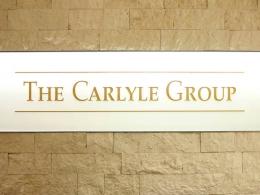With multinational pharma companies scouring for deals to tap the Rs 41,000-crore Indian pharma market, domestic firms are actively exploring demergers of their core businesses to unlock value. This trend particularly comes in the backdrop of the attractive valuation that Piramal Healthcare received from Abbott Labs for its domestic formulation business. Abbott acquired the domestic formulation business of Piramal Healthcare for $3.7 billion last month.
The Indian drug market is growing at 18% per annum. That was perhaps reason enough for Abbott Labs to pick up Piramal Healthcare arm, with revenue of Rs 2,000 crore, for Rs 17,000 crore.
The latest player to take this path is Alembic Limited, which has decided to de-merge its core pharmaceutical business into a 100% subsidiary company, Alembic Pharma Limited. The company on Tuesday announced plans to de-merge its domestic formulation, international generic and API business to its subsidiary company.
Pharma major Dr Reddy’s Labs is learnt to be in the process of de-merging its formulation business into a separate entity. Speculation is rife that Dr Reddy’s is in talks with global major, GlaxoSmithkline to sell out its proposed formulation entity. DRL has a domestic growth of 23% vs. industry growth of 18% and has a domestic market share of 2.2% (ORG IMS MAT March 2010). Last week, VCCircle had reported on Glaxo SmithKline (GSK)'s interest in DRL's domestic formulations business.
Sujay Shetty, associate director for pharma & life sciences at PricewaterhouseCoopers, said, “Yes, it is the new trend in Indian pharma sector to de-merge the main business into a separate entity. In the backdrop of the Abbott-Piramal deal, promoters are looking for higher valuation, even though their companies may not be the right candidate to get acquired. However, the MNCs are always ready to pay higher valuations for those companies with strong presence in Indian market.”
Similarly, the major reason Alembic sees in the de-merger is increasing shareholder flexibility. Speaking to VCCircle, Rajkumar Baheti, Director & President-Finance, Alembic Limited, said, “The move to bring quality assets under a separate company increases the possibility of bringing strategic or financial investor into the company. The valuation of the newly formed company as well as the old assets will be increased in near future as expansions can be done independently without affecting other businesses.”
Also, demerger will help insulate the core pharma business from the severe volatility and uncertainty of Pen G business of the Vadodara manufacturing facility and also can unlock value from real estate assets by potentially use of land area owned by the company for real estate development in future, he said. However, according to him, the company is not looking for any investor in the subsidiary currently. “Our subsidiary may be listed by January 2011,” he said.
Explaining the key attraction for MNCs, Sujay Shetty said, “MNCs are very much interested in domestic growth story in Indian pharma sector. They want to gain from the Indian story of greater penetration, great brands, good sales force, and good distribution. They are not bothered about Indian pharma companies’ presence in the US market. These reasons may compel Indian pharma majors with strong domestic presence to de-merge their domestic business to a separate entity.”
A similar trend was at play a few years ago when pharma companies hived off their research and development activity into a separate firm. Dipta Chaudhury, Programme Manager, South Asia and Middle East, Pharma and Biotech Practice, Frost & Sullivan said, " In the first phase of demerger in Indian pharma space IN 2008-2009, R&D business and contract research and manufacturing services (CRAMS) were spinned off. Examples are Sun Pharma and Piramal Healthcare."
"Though the growth in R&D is comparatively low, this is a high potential area. The company can separate the cash flow from these potential businesses,” she reasons.
Similarly, Mumbai-based Glenmark Pharmaceuticals Ltd had plans to raise funds by listing its hived-off wholly owned generics arm Glenmark Generics Ltd. However, it has now deferred the planned initial public offering (IPO) of its arm. It had filed for a DRHP with SEBI to raise around Rs 600 crore.
Sun Pharmaceutical Industries had demerged its R&D operations, including new drug delivery systems, into a new company called Sun Pharma Advanced Research Company (SPARC), while Glenmark’s de-merged generic business was spun off into a new entity called Glenmark Generics.
Glenn Saldanha, CEO& MD, Glenmark Pharmaceuticals, told VCCircle, "As more and more countries migrate to the pure generics model, Glenmark Generics will be best positioned to capture market share and exploit potential of the pure generics model in new markets. Simultaneously, we will be able to focus better on our branded generics markets and if these markets transition to pure generics then we will also be able to capture market share in that space also quickly," he added.
On the rationale behind hiving off R&D arm, Dilip Shanghvi, chairman, Sun Pharma had said, "New chemical entity and novel drug delivery system projects not only tend to be unpredictable, fund requirements are uneven, and much larger than the simpler reverse engineering products. As a project goes through later stages of development, fund requirements escalate. Also as we know, despite the best minds and large resources committed, a project may or may not reach market. Recognizing this fundamental difference, we have proposed to divide the company into two parts."
Saldanha added, “Over a period in time, we see the pharmaceutical business being divided into two clusters-the innovators and the pure generics business. Keeping this in mind, we separated our pure generics business which is primarily the business which caters to the developed world."
Two years back, Dr Reddy's bought back stake in Perlecan Pharma, its hived off R&D arm, by paying the investors, ICICI Ventures and Citigroup, approximately Rs 72 crore for 43% equity shares. Perlecan was formed in 2005 with equity capital from Citigroup Venture, ICICI Venture and DRL.






